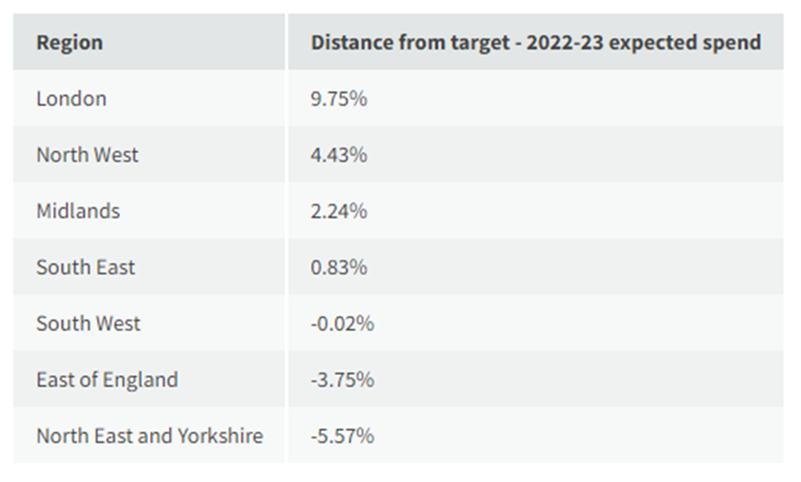T: 01822 851370 E: [email protected]
RSN Voices Serious Concerns Over ‘Fairness’ Of Settlement
Read here...
London gets well over ‘fair share’ of specialised NHS services while rural areas miss out

The Health Service Journal recently reported on NHS England figures. HSJ findings suggest “people in some more rural areas are missing out on specialist treatments they should be getting, while Londoners are receiving a lot more than their fair share”.
The HSJ goes on to report that:
“First ICS (Integrated Care Systems) specialised service allocations reveal:
- Systematic shortfalls in access to remote communities.
- Spending on Londoners is 9.8 per cent over target.
- Suggests those living further from specialist services are missing out, including on cancer and cardiac treatment.
NHS England has suggested the main cause is “systematic shortfalls in access [in] remote communities”, leaving “unmet need” for specialised services in these areas.
However other factors, including coding and reporting practices, year-to-year fluctuation, and weaknesses in the formula, are also likely to be confusing the picture, sources said.
The variation is being uncovered now because NHSE is preparing to fund many specialised services via allocations to integrated care boards. These allocations will be based on estimates of their populations’ healthcare needs, rather than NHSE negotiating payments directly with provider trusts – as it has since 2013.
The national body published figures last month showing for the first time how much the current spending for each integrated care system compares to what its new allocation formula predicts should be spent.
The highest above its “fair share” target is South East London, at 22.2 per cent over, while Bedfordshire, Luton and Milton Keynes; Dorset; Northamptonshire and Somerset are all more than 10 per cent below.
West Yorkshire is 11.3 per cent below its fair share, despite housing Leeds Teaching Hospitals, which is a large city specialised provider.
London is the highest region above target by some distance (9.8 per cent), while the North East and Yorkshire are furthest below, at 5.6 per cent below (see table below).
 |
An NHSE board paper said the “distribution… is much broader than for other allocations”, such as “core” secondary care.
But the specialised budget is also much smaller than that for core services, so when the budgets are effectively combined, as is due to happen when they are delegated, the effect on their distance from the overall “fair share” is minimised.
In addition, despite the widespread of current spending, budget allocations will only move very slowly towards “fair shares” and “targets”, NHSE specialised director John Stewart stressed at its board meeting last month.
This will prevent any areas from seeing cash terms fall in funding or access, but it also means populations currently losing out will not catch up quickly.
Mr Stewart said the pace of change “will be heavily dependent on future government funding decisions” and stressed all ICBs would receive a “minimum level of growth” for 2024-25.
An NHSE spokesperson added:
“The NHS will continue to engage closely with ICBs and providers on these changes and move carefully and cautiously to ensure we balance the need to correct these historical inequities with the need to maintain financial stability.”



